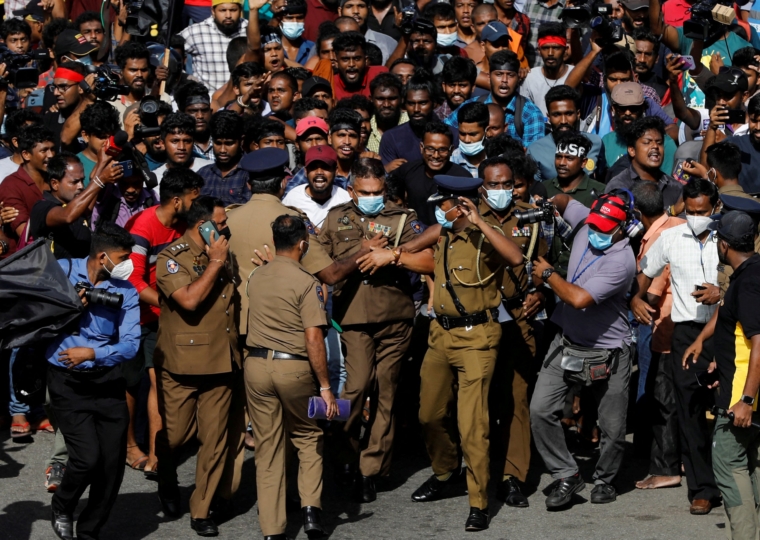Fears are growing that Russia’s war in Ukraine could cause more countries to impose bans on food exports which could lead to further supply constraints and rocketing food prices.
According to the International Food Policy Research Institute, more than a dozen countries – including Turkey, Indonesia, Egypt and India – have banned exports of some food staples since the invasion of Ukraine on 24 February, as the price of grain soared this year partly due to the conflict.
Laura Wellesley, a senior research fellow at think tank Chatham House, said the bans and restrictions have contributed to all-time high food prices, but what was most worrying was “the potential for more countries to follow suit”.
India, the world’s second biggest wheat producer, banned exports of the grain last week becoming the latest country to restrict food from leaving its borders to meet domestic needs.
Ms Wellesley said: “Hot and dry weather in other major grain-producing regions – India, South America and the US, for example – may hurt harvests in the coming months, adding to fears of a global supply shortfall.”
Known as the “breadbasket of Europe”, Ukraine is one of the world’s leading wheat exporters. With Russia, it produces about 30 per cent of the globe’s traded wheat.
The country has seen production disrupted by the war, and shipping from the Black Sea region has been blockaded by Russia, with an estimated 22 million tonnes of grain stuck in silos in Ukraine’s ports.
About 300,000 tonnes of Ukrainian wheat that Egypt purchased for delivery in February and March is yet to be shipped, with Egyptian prime minister Mostafa Madbouly saying this week that the government had wheat reserves to last four months.
More on Russia-Ukraine war
Moscow said on Thursday that sanctions on Russia would have to be reviewed before the blockade could be removed, according to the Interfax news agency.
Tim Benton, research director of the environment and society programme at Chatham House, told i that it was the first instance where he has seen food being used as an “economic weapon” against the world and not just against the country involved in the fighting.
“It really emphasises the need to have a much more sophisticated view of global food security than just relying on the market to deliver,” he added.
He pointed to how in previous food crises panicked governments have reacted by putting in place export bans to counter potential local food shortages.
“That amplifies the perception on the markets that there won’t be enough food and you end up with a very rapid price amplification,” he added.
Professor Benton likened the situation to the food crisis in 2010, when extreme heat in Ukraine and eastern Russia knocked out about 30 per cent of supplies.
As a result, countries including Russia imposed export bans, prices skyrocketed and “food insecurity really took off”, including in the UK where food bank use started to become “part of the political discourse”.
Professor Benton added: “Food prices also sparked the Arab Spring and led to the geopolitical reconfiguration of the Middle East, the rise in migrants, the growth of populism [and] nationalism within Europe.”

While G20 nations have tried to discourage countries from imposing export bans ever since, the effort has largely failed, as countries are naturally frightened for their own needs and “we don’t have a global food system that stops these price amplifications from happening”, Professor Benton added.
The crippling effects of current food price hikes and rising inflation are already being felt in many countries. In the UK, families are having to choose between eating and heating, while in Sri Lanka mass protests have broken out amid food shortages as the island nation battles a devastating economic crisis.
“We are already seeing food-related civil unrest, and in extremis this can lead to state failure,” said Professor Benton.


Trump has already engineered the great betrayal of Ukraine